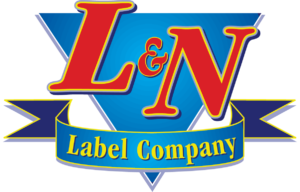Over-the-counter CBD products aren’t regulated by the FDA, so how do you know what is inside them?
A study from The Journal of the American Medicine Association found more than two thirds of CBD products online were mislabeled. Some products contained less CBD than what was stated on the label, others contained more, and some had no CBD in it at all.
CBD is sold as a supplement and not a medication which means the FDA does not regulate its safety or purity. In New York City, regulators have cracked down on CBD, banning all food and drinks that claim to have the compound in it.
The 22News I-Team purchased 3 different CBD products from convenience stores in western Massachusetts, a tincture, a drink and a package of gummies.
We then brought these products to ProVerde Laboratories in Milford, to find out what’s lurking behind the labels.
Chris Hudalla is the lab’s co-founder and has been testing hemp and marijuana products for years.
“We test for many producers and many consumers who are buying CBD products, and are concerned they’re not getting what they’re paying for.”
CBD Test Results:
Tincture $45
- The label claimed there was 250 mg of CBD in the oil.
- Chris Hudalla told the 22News I-Team there was far less than that.
- “We found there was 142 mg in the bottle. There was a 43% shortage in what the consumer paid for but didn’t get.”
CBD Drink $17
- The drink advertised was 75 mg of CBD.
- The lab results from ProVerde found only 17 mg, a 77% shortage.
Gummy Worms $13
- The gummies advertised 500 mg of CBD, but that wasn’t even close.
- “We found no detected CBD, literally nothing. So these were probably the most expensive gummy worms ever bought.”
Chris Hudalla told the 22News I-Team, the test results we saw weren’t unusual, in fact, it happens quite often. He said they’ve even found toxic chemicals in over-the-counter CBD products, ranging from paint thinner to pesticides. “In addition to not getting your CBD, you’re getting other things you didn’t pay for, nor do you want.”
The 22News I-Team took our lab results to Mark Zatyrka, the CEO of INSA in Easthampton, to see what the price of the products we purchased should have been.
Tincture
The tincture cost the 22News I-Team $45, but Zatyrka said based off of the CBD the lab detected, it should have cost far less.
“That would probably be about $5 worth of product.”
He also pointed out that for CBD to work, you need to have a lot of it. “The fact that there’s a little, or none at all in those products, it’s very unlikely you’ll any relief from those products at all.”
In Massachusetts, recreational and marijuana dispensaries like INSA have to get their products tested by the state. You can tell a CBD product has been tested, because it’ll have a label on it that comes directly from a state certified lab.
There Is Little CBD In CBD Products You Buy
The amount of CBD in a lot of marketed products — even ones that are meant to be taken orally — is so small that it’s unlikely to make any therapeutic difference for the person using it, said UCLA’s Cooper. In the few studies that have involved humans, doses were in the hundreds of milligrams, but most CBD-infused products contain much less than that, she said. For instance, Lord Jones’s CBD gel capsules, which the company says can be used as a daily supplement and help “promote a calm sense of well-being,” contain just 25 milligrams of CBD per pill. Although Lord Jones does say people can take up to four capsules daily, it also notes on its website that such statements “have not been evaluated by the Food and Drug Administration.”
CBD advocates were hoping laws around the compound might loosen up — or at least become clearer — after President Donald Trump signed the 2018 Farm Bill. The bill legalized hemp, a variety of the cannabis plant that contains no more than 0.3% THC. But regulation of CBD, whether derived from hemp or not, is still largely under the FDA’s jurisdiction. Since CBD is technically an active ingredient in an FDA-approved drug, companies are not allowed to add it to food or drinks sold across state lines or to sell it as a dietary supplement. (Companies are, however, allowed to put the compound into beauty and skin-care products, as cosmetics are not subject to premarket approval by the FDA. That could explain why drugstore chains like CVS and Walgreens aren’t worried about introducing CBD-infused topical products in their stores.)






